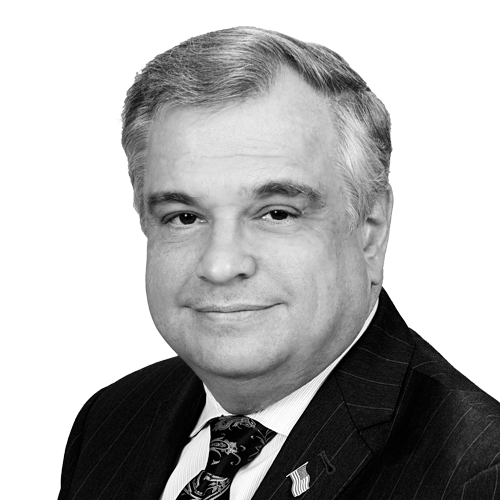Not many people would sign on as CEO of a company facing troubled times. Then again, not everyone is Jeff Myers. With a career evenly split between hospital operations and managed care, Myers left his position as CEO of Alliant Health Plans to take on the role of CEO at Hamilton Medical Center (HMC). Before he could take HMC to the next level, however, he had to fix revenue matters.
Up against a recession in Dalton, Georgia—one so great that most of the United States paled in comparison—Myers had his work cut out for him. “When the economy went down, we wound up with the second-highest unemployment rate in the country,” says Myers, “and that carried on for nearly a five-year period, so that was a significant challenge.”
“The line in the sand was that we wouldn’t compromise on quality or service on the initiative we took to reduce cost.”
Myers quickly set up shop and collaborated with his team in an effort to find a pragmatic solution. “The one thing we really had to do was look at our operation and become maximally efficient,” he recalls. “We went through a process that lasted six to nine months, and we took our time with it. The line in the sand was that we wouldn’t compromise on quality or service on the initiative we took to reduce cost.”
Myers and his team accomplished just that, effectively reducing Hamilton Medical Center’s costs by 7–8 percent. “It kept us [in the] black through the whole process, and we actually didn’t lose any money,” he says. “I think that operating philosophy—that we’re not going to compromise on service—laid a foundation for what became the next five years, in terms of progression on our quality scores.”
But Myers didn’t stop there. Realizing that HMC needed more contracts, he focused on its strategic growth. HMC didn’t yet have a lot of contracts with national payers, so it began negotiations with Blue Cross, Aetna, and Cigna in 2010/11. In addition, Myers and his team hunkered down to improve hospital operations. “We put a big focus on service lines and looked at each one from a facility- and physician-complement standpoint and focused on targeted growth in each one of the arenas,” he says.
These initiatives paid off, literally, as HMC saw investments in its facilities to the tune of $35 million, with another $40 million within the next two years, allowing for a much-needed revamp of HMC’s ICU. Built in 1962, the ICU desperately needed an upgrade—something HMC completed this past October. “We really exist specifically to meet the healthcare needs of our community, and in order to continue doing that, we needed to expand up to fourteen beds and to upgrade the area,” Myers says. “That was really the motivation behind it.”
He also took the initiative to adopt and implement new technologies to improve HMC’s overall functions for its physicians. “We started our Clinical Integration Network in 2009, in partnership with the medical community, and each one of the physicians have at least one protocol that they’re responsible for,” Myers says. “We loaded software on 100 percent of the physicians’ practices and the hospital to extract all of our data into one central depository. Each one of the physicians receives a monthly report on the compliance.”
This program allows physicians to better partner with their patients to provide optimal care, which is important to Myers. “That, for me, is the foundation of population health,” he says. “The fact that we own our own health plan [means that] we have an aligned incentive to improve health status over the population, so that’s what that really is all about.”
Utilizing that partnership gave way to a new program—HMC’s health information exchange, which HMC is preparing to roll out. Ultimately, the program will look to increase the organization’s functionality. “It’s a real-time data exchange between physicians related to a given patient in their care, to reduce duplication of services,” Myers says. The health information exchange stands to help reduce operating costs while providing the best care to HMC’s patients. With these advancements, it’s not surprising that HMC has managed to win several prestigious awards, including Truven Health Analytics’ Everest Award, which only seventeen hospitals in the country received this past year.
This success is something that Myers attributes to the skillfulness of his team. At the end of the day, HMC thrives due to its leadership and the efficiency of its team, with continued focus on the patient experience. “I think, foundationally, we are here to take care of the health needs of our community, whether it’s prevention, acute treatment, [or] postdischarge in their home environment,” Myers says. “We continue to look for what opportunities there are to better serve our community.”

